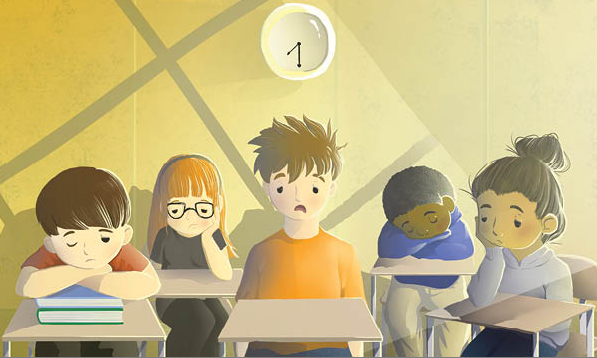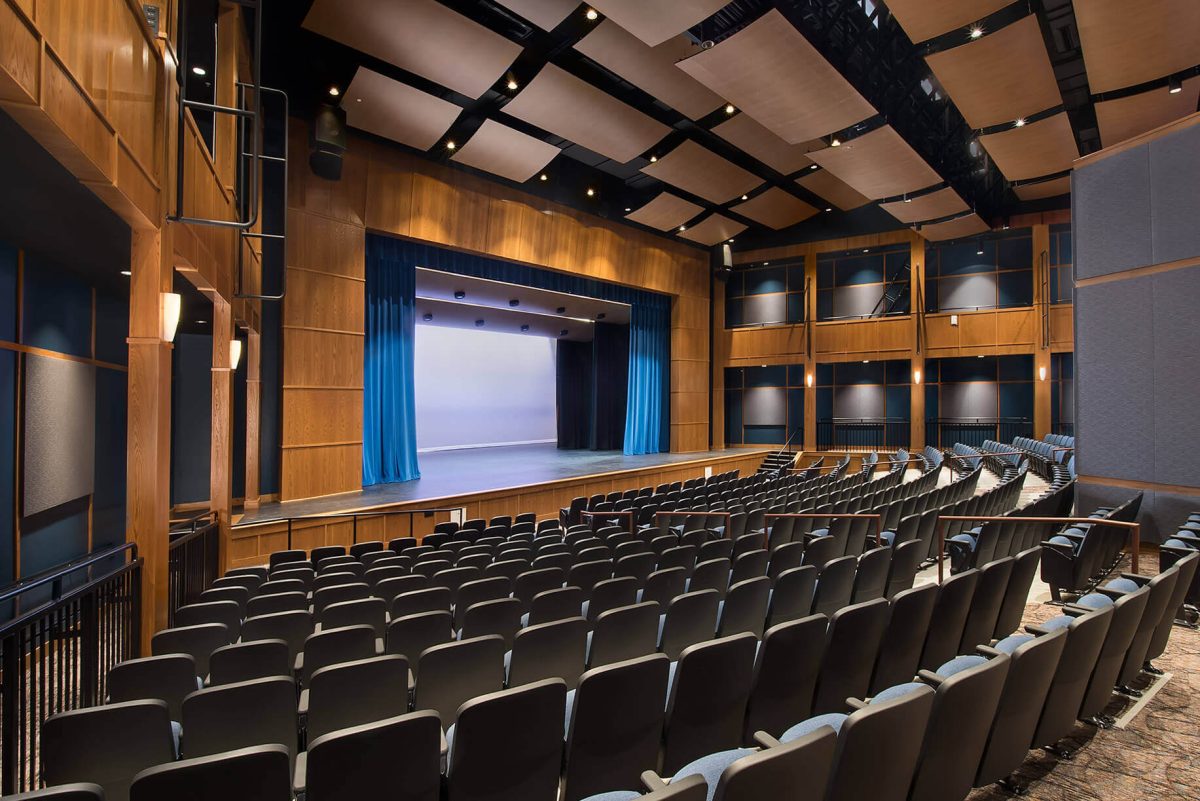Do you feel like you start school too early?
Starting the day with a few yawns and a slow brain has led to many students agreeing that school start times should be later. This is a problem for many high schoolers who are at an age where sleep is important for their health and their well-being due to physical and psychological changes regarding age.
Here at Kennebunk High School, the start time of classes is 7:45 a.m., with many students and staff showing up earlier than that. According to the Center for Disease Control, “high school students who do not get 8 hours of sleep each day are considered to have insufficient sleep.” A trend graph in the article also emphasizes the amount of students reporting that they don’t get enough sleep; this deficit has increased from 2009 to 2021. There has also been a pattern in young women reportedly not getting enough sleep compared to young men, with 80% of women feeling as if they have insufficient sleep.
Not only do the students have to be at school at 7:45, some have to wake up earlier to catch the buses. Buses usually depart the bus barn at around 6:00 to 6:15 in the morning to pick up high schoolers and middle schoolers and arrive at the two schools between 6:40 and 7:00, with the doors opening to students at 7:00. Some staff members and custodians show up even earlier in order to get the school ready for the day. By 7:30, staff members have all arrived at the school, with some of them needing to commute more than forty minutes.
At the same time, students and staff have activities after school hours, affecting the time they go to bed. A member of KHS Theater mentions that practices and preparations for performances can last up to five or six hours, with many not leaving until 9 or 10 p.m. On top of that, students have homework and chores at home to do, and some are not able to sleep until close to midnight. Additionally, teachers spend hours into the night grading students’ work or planning for classes. Not only that, but staff members have lives at home, such as parenting or taking care of family members, which leads them to be up at later hours. On the other hand, students are participating in extracurriculars, sports, clubs, or their responsibilities at home, in addition to having to do work, internships, and schoolwork. With each of these factors on the plates of students and staff, they find themselves going to sleep at later hours and getting less than eight hours of sleep each night.
This ongoing struggle is not only happening in Kennebunk or the state of Maine, but also in other schools across the country, and, by extension, the world. Psychologists have discovered that later start times have a correlation with more sleep and better performance and health amongst students. Though students should have eight to ten hours of sleep in order to function normally and routinely throughout the day, that appears to be a luxury to many. Allowing schools to start later can let students, parents, and staff have more sleep and better “daytime functioning.”
An article from AAA State of Play states that many “would agree that school start times are not ideal. In America, the average school start times are notoriously early—the average school start time in the United States is 8:03 a.m. In 42 U.S. states, 75% to 100% of public schools start before 8:30 a.m., which is the CDC-recommended start time.” The district should consider this recommendation for both current and future students. Other solutions to consider are altering the daily schedule (both in class and intermission time) and shortening the school hours, getting rid of late start Wednesdays altogether.
Education is necessary for young people in order to function in our world, in the future, and I, along with others, strongly feel that students will have a better time functioning and articulating the material if school start times were shifted to the benefit of their health.






